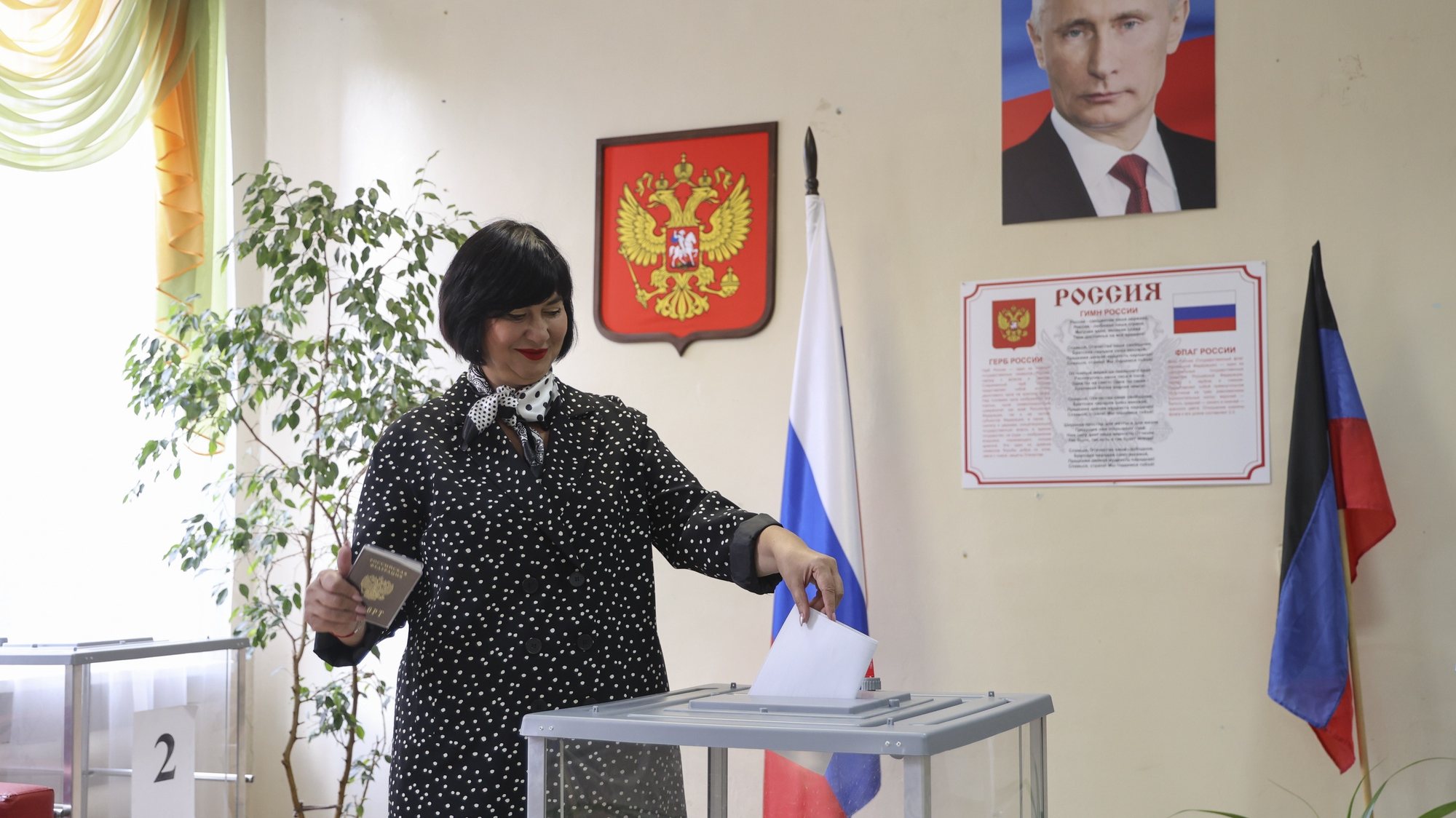Russia concludes regional and municipal elections, in a vote that was extended to the regions annexed to Ukraine, despite the condemnation of kyiv and the majority of the international community.
Russia concludes regional and municipal elections this Sunday, in a vote that was extended to the regions annexed to Ukraine, despite the condemnation of kyiv and the majority of the international community.
At the same time, by-elections of Duma deputies (lower house of parliament) are held in four constituent entities of the Russian Federation.
The vote, which began on Friday in some regions, covers Ukraine’s Crimean peninsula, annexed by Russia in 2014.
Moscow expanded the vote to the Ukrainian regions of Donetsk, Luhansk, Kherson and Zaporizhia, annexed in September, despite the ongoing war and the fact that its forces do not fully control them.
kyiv denounced that the elections in the occupied regions are illegal for violating the sovereignty and territorial integrity of Ukraine, and warned that “they will not have any legal consequences.”
For the Council of Europe, the continent’s most important human rights body, this is “a flagrant violation of international law, which Russia continues to ignore.”
The Organization for Security and Cooperation in Europe (OSCE) also condemned the elections in the occupied territories and stated that they “will not be valid under international law.”
The United States called the elections a “propaganda exercise” and reiterated that it will never recognize Moscow’s claims “over any sovereign territory of Ukraine.”
In response, Russia accused the United States of interfering in the internal affairs of the Russian Federation.
The United Nations expressed its concern about the holding of this electoral event, highlighting that the vote “has no legal basis.”
The elections are held in the middle of Russia’s war against Ukraine, which Moscow invaded on February 24, 2022.
Proclaiming the annexation of Ukrainian regions at the end of September, President Vladimir Putin stated that local residents “will be Russian citizens forever.”
Among approximately 85,000 candidates, 26 governors will be elected, five of them indirectly, 20 regional parliaments and several municipal and local bodies.
In Moscow, five candidates are running for the municipal council, including the current incumbent, Sergei Sobyanin, of the conservative United Russia party, which supports the regime and holds 336 of the 450 seats in the federal parliament.
Putin’s party also controls 58 governors out of 85 and almost 70 percent of the 3,980 deputies in regional parliaments in previous elections.
In addition to the current president, Boris Chernyshov (Russian Liberal Democratic Party), Vladislav Davankov (New People’s Party), Leonid Zyuganov (Communist Party) and Dmitry Gusev (Fair Russia Party) are running for the Moscow chamber.
Source: Observadora
